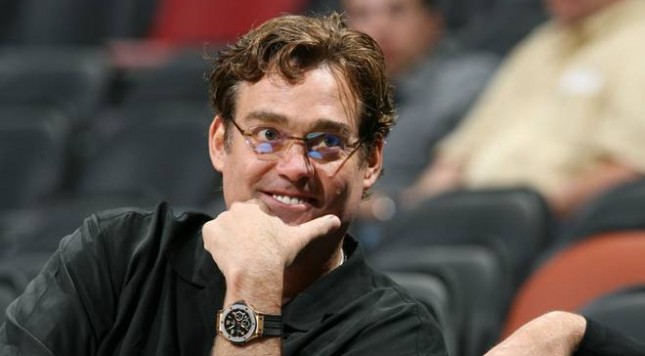We conclude our Hall of Fame series at Crossover Chronicles — and with it, our offseason look at basketball history before tackling the upcoming NBA season in earnest — by looking at two people who should make the Hall as contributors.
You will find a few team owners who have made their way inside the Naismith Hall of Fame. Jerry Buss of the Los Angeles Lakers is one of them. Bill Davidson of the Detroit Pistons is another.
You won’t find an overwhelmingly large number of team executives, but Wayne Embry is one of them. Jerry Colangelo — partly because of his work with USA Basketball — was also the general manager of the Phoenix Suns for some time. There is a place in Springfield for thoughtful and important architects of teams.
With these realities in mind, it only makes sense that the Basketball Hall of Fame should bring in a new owner and a new executive, both associated entirely with the best organization of the 21st century, the San Antonio Spurs.
*
It’s not just that the Spurs have been so relentlessly successful. It’s not just that they’ve won a bunch of championships. Why Holt (as an owner) and Buford (as a general manager) deserve Hall of Fame recognition is that they’ve remained great at what they do for a long time. The longevity of the Spurs’ stability (not just their success) as an organization is one of their foremost characteristics.
Realize this, too: While you could say that Tim Duncan, Tony Parker, and Manu Ginobili wanting to stay around is what has made Holt and Buford (and head coach Gregg Popovich) champions, you can just as easily turn around that statement. You can claim that because Holt and Buford have established and maintained the perfect organizational culture — one which an established player would never want to leave — they have given Duncan/Parker/Ginobili every incentive to stay. They have dramatically increased the odds that their big three would remain together as long as it has. It’s a two-way street.
It’s worth saying at this point that in Los Angeles, Doc Rivers is having a devil of a time being the kind of general manager and coach he wants to be… or feels he is capable of becoming. Rivers the coach was very good in last season’s playoffs, but Rivers the general manager left his team shorthanded and ultimately underequipped. Being great at both tasks is not easily done. A complete focus on one job can and does diminish attention toward the other.
Gregg Popovich had been the general manager of the Spurs, but he arrived at a point in the mid-1990s when he felt he had to coach the team. Instead of staying on as general manger, Pop released himself from that assignment. Someone had to fill in, and Buford became that man. Buford’s skill in knowing what a “Spurs” player looks like has stamped him as one of the great GMs of the present day. The continued ability to find the right role player or make the smart draft pick puts Buford… like the Spurs… in a class by himself.
That Holt and Buford are able to keep things humming along is a testament to their people skills, but also to their knowledge of the profession and their understanding of what needs to be done in a given situation. They stay out of the way when they need to, but their input and leadership have always set the right tone for the organization whenever coaches and players needed a refresher course.
Owners and general managers are not popular people in general, but they’re even less popular at the Basketball Hall of Fame. Will the Hall let in a new owner and GM, showing how diverse it can be, or will it take a stand on this issue, keeping Peter Holt and R.C. Buford at bay?
The fuller legacy of the San Antonio Spurs — beyond the wins and losses, beyond the rings, all in a comparatively smaller market — offers all one really needs to know on the subject.

